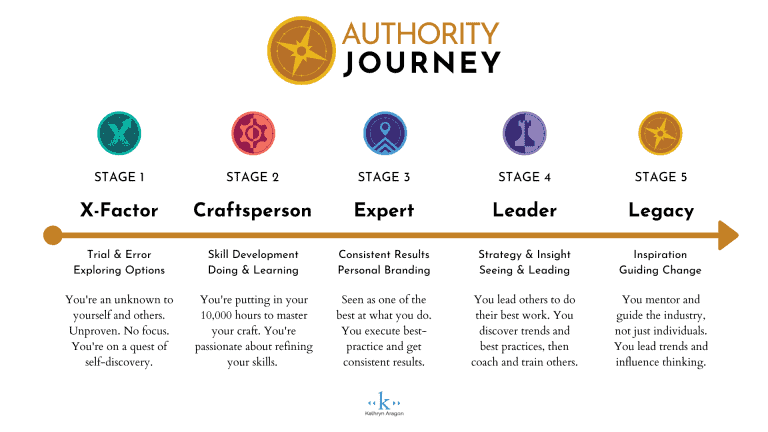Few things carry as much silent weight as a job title. It’s just a few words on a LinkedIn profile or business card, but behind those words lies an entire perception of competence, seniority, and purpose. Whether you’re a “Marketing Assistant” or a “Brand Strategist,” your job title doesn’t just define your role—it helps shape your career trajectory, self-perception, and how others interpret your worth in the workplace.
More Than a Label: What a Job Title Represents
A First Impression with Lasting Impact
At first glance, a job title might seem like a formality—a placeholder on a nameplate or a dropdown option in HR software. It’s often treated as a functional label, a necessary input for payroll, organizational charts, or task assignments. However, beneath this surface-level utility lies something more potent. Your job title silently broadcasts your job position, shaping how colleagues, clients, and recruiters perceive your role and capabilities.
The words attached to your job position influence how seriously you’re taken in meetings, the level of trust granted to your expertise, and even your eligibility for leadership discussions. A strong, clearly defined job position carries authority. A vague or generic one can leave others guessing—and potentially undervaluing—your contributions.
Job Titles and Career Trajectory
Titles are not just administrative; they often serve as milestones along a career path. Each job position is a marker that signals progress, specialization, or increased responsibility. When your title evolves, it typically reflects more than a new task list—it represents a deeper integration into strategic goals or leadership initiatives.
Professionals often look back at their resumes and see not just companies and dates but a storyline told through job positions: Intern to Coordinator, Analyst to Manager, and eventually, Director or VP. That progression isn’t just personal—it’s also professional currency. A recruiter scanning through applications isn’t just reading for skills; they’re decoding your journey through the job positions you’ve held.
Gateways and Glass Ceilings
A job position can be empowering, but it can also be limiting. In many organizations, growth opportunities are tied to job titles. Someone with the title “Assistant” might find it harder to break into strategic roles, regardless of their actual contributions. On the other hand, someone with a more senior-sounding job position, even if unofficially inflated, may be invited into higher-level conversations by default.
This is where the politics of titling come into play. Being thoughtful about how a job position is named can create access—or deny it. It’s not just about sounding impressive; it’s about aligning your title with the value you bring. An accurate, well-chosen job position gives others a reason to see you at the next level.
Communicating Expertise Through Clarity
Another key function of a job position is clarity. When someone encounters your email signature, LinkedIn profile, or conference badge, your title tells them what you do without further explanation. A clear job position allows others to understand your area of focus and how to approach collaboration with you.
This is especially important in interdisciplinary environments where teams span marketing, tech, operations, and beyond. Without clearly defined job positions, communication gets messy. Roles blur. Authority becomes ambiguous. That’s why organizations benefit from investing in consistent and intentional title structures—it keeps the ecosystem running smoothly.
The Job Position as a Reflection of Value
Ultimately, your job position is more than a name; it’s a mirror reflecting how your company views your role. Does your title match the level of complexity and ownership you carry? Does it reflect your growth? Or are you still listed as “Coordinator” while leading projects that drive six-figure revenue? In that case, your job position may be underselling your value—and possibly impacting future opportunities.
This misalignment can also ripple outward. If someone with significant achievements is under-titled, they may not be found in executive searches or peer benchmarking reports. Their job position, if too junior on paper, creates a visibility gap that hinders advancement—even when merit is present.
A Strategic Asset Worth Defending
So, whether you’re in a startup, corporate enterprise, or freelance business, take your job position seriously. It’s not just a word—it’s a strategic tool. It can open doors, shape conversations, and define your professional brand. And if your current title doesn’t do your work justice, consider that a signal: it’s time to advocate for alignment between the work you do and the job position that represents it.
Instant Perceptions in a Fast-Paced World
The corporate world often revolves around shorthand. Recruiters skim resumes in seconds. Clients glance at email signatures to size someone up. Hiring managers search LinkedIn using keywords. In this quick-scan environment, your job title becomes a tool of instant communication. It can either clarify your professional identity or leave others confused about what you actually do.
The Risk of Overly Creative or Vague Titles
This is especially important in industries undergoing rapid change. In tech and digital marketing, for instance, job titles have proliferated into highly specific (and sometimes absurdly creative) directions. While the creativity can be refreshing, it also poses a risk: titles that sound impressive within one company may be meaningless outside of it. When choosing or negotiating a job title, clarity and external relevance matter just as much as internal appeal.
Hierarchies, Titles, and the Illusion of Authority

There’s also the issue of hierarchy. Your job title often implies where you fall on the org chart—even if your actual responsibilities don’t fully reflect that label. This inconsistency means that your job title can either amplify or undervalue your true scope of work, depending on how it’s framed.
The Psychological Impact of a Title
Many professionals underestimate the psychological impact of a job title. Being promoted from “Coordinator” to “Specialist,” or from “Associate” to “Lead,” can boost morale even if the job function barely changes. A well-crafted job title becomes a badge of honor. It can empower employees, strengthen engagement, and subtly reinforce a sense of progression.
Job Titles and Organizational Clarity
The Hidden Architecture of a Healthy Company
From an HR and employer branding perspective, job titles play a far more strategic role than many realize. They’re not just identifiers—they are the framework that helps an organization understand itself. A thoughtfully constructed job title system becomes the invisible architecture behind team dynamics, career progression, and internal alignment. When companies are intentional about how roles are named and structured, they lay the foundation for operational clarity and cultural cohesion.
Building Transparent Career Ladders
One of the most powerful outcomes of consistent job titling is the ability to create clear, motivational career ladders. Employees want to know what growth looks like and how to get there. Vague or inconsistent titles blur those lines. But when job titles are strategically layered—Associate, Specialist, Senior, Lead, Manager, Director, and so on—employees gain visibility into the path forward.
This clarity supports performance development, goal setting, and retention. It helps HR departments build structured reviews and promotion criteria, making evaluations feel less subjective and more fair. Without clearly defined job titles, career advancement becomes murky and can foster resentment or disengagement.
Enhancing Cross-Departmental Communication
Well-defined job titles also eliminate friction in collaboration. In any medium-to-large company, employees often work across departments—marketing needs to coordinate with product, finance with operations, HR with legal. In these cross-functional moments, a title serves as a shorthand for expertise, responsibility, and authority.
When team members know exactly what each title entails, they can navigate interactions more efficiently. Who leads this initiative? Who approves that budget? Who makes the final decision? With consistent job titles, those answers are built into the structure—reducing bottlenecks and speeding up decision-making.
Strengthening Employer Branding

From a branding standpoint, job titles are often part of a company’s public face. They appear in LinkedIn headlines, conference panels, and email signatures. Consistency in titling across employees creates a more professional and unified external image. It tells potential candidates and partners that the organization values structure, clarity, and career development.
Inconsistent or overly quirky titles can confuse outsiders, particularly in recruitment. A candidate may pass on a job posting simply because they don’t understand what the title means. A strong employer brand includes recognizable job titles that make it easy for top talent to understand roles and imagine themselves in them.
Internal Identity and Employee Empowerment
On a more human level, job titles also contribute to identity and belonging. They give employees a sense of place and purpose within a complex system. When someone’s title accurately reflects their responsibilities and growth, it reinforces their value to the company. It validates their contributions. It tells them: “You matter, and here’s how your role fits into the bigger picture.”
Conversely, when job titles feel off—too junior, too vague, or inconsistent—employees may feel overlooked or invisible. That misalignment can erode morale and eventually lead to disengagement or turnover. Clarity in titling, then, is not just an HR exercise—it’s a morale booster.
External Perception and Industry Authority
It’s also worth noting the external messaging that job titles send. Whether you’re speaking at a conference, reaching out to clients, or representing your company in the media, your job title will help frame the authority and relevance of your voice. In these moments, perception becomes reality.
Titles Matter in the Job Search
Job seekers especially need to pay attention to titles. When applying for a new role, the job title on your current resume tells part of the story about your readiness. If your title doesn’t align with the market norm—even if your experience does—you might get passed over.
Optimizing Your Title for Visibility
That’s why many professionals are now advocating for title optimization in addition to resume formatting. Adjusting how you describe your current job title—while staying honest—can significantly improve visibility in job platforms and search engines.
Inflated Titles: Perk or Pitfall?
Offering inflated job titles as a non-monetary perk has become common in startups. While it may seem like a win-win, it can lead to complications later. When transitioning to more traditional companies, mismatched expectations or overqualification concerns can arise.
The Rise of Global Teams and Remote Work

The rise of remote work and global hiring has intensified the role of the job title. With people collaborating across continents, titles often serve as the first and only clue about someone’s responsibility. Clear, universally understood job titles streamline communication across diverse teams.
Freelancers and Personal Branding Through Titles
Even freelancers and solopreneurs are rethinking their titles. Should they be “Founder,” “Consultant,” or “Creative Lead”? Each sets a different tone. A relevant and clear job title can guide client expectations and boost professional credibility.
Job Titles and Equity in the Workplace
The Inequity Behind the Nameplate
There’s another dimension to job titles that often goes unspoken—but it’s critical: equity. Studies consistently reveal that women, people of color, and other underrepresented groups are frequently assigned lower-ranking job titles, even when their work matches or exceeds that of their peers. These disparities don’t just live on paper—they have real-world consequences for career progression, pay, and visibility.
A title isn’t just semantics; it carries weight in salary benchmarking, leadership opportunities, and perceptions of authority. When two professionals perform similar roles but one carries the “Manager” label while the other is labeled “Coordinator,” a gap in perceived value is instantly created—regardless of actual performance.
The Career Cost of Misaligned Titles
Lower-tier job titles often lead to reduced compensation and fewer promotion opportunities. Over time, this compounds. A professional whose title fails to reflect their real contributions may find themselves consistently passed over for leadership roles, excluded from high-level strategy discussions, or overlooked for stretch assignments. What begins as a small discrepancy in titling can evolve into a full-blown barrier to advancement.
This is especially concerning when the misalignment disproportionately affects underrepresented talent. Without intervention, job title inequity becomes part of a larger cycle of systemic bias—quietly widening opportunity gaps within the very structures meant to support growth.
Responsibility Without Recognition
One of the most common patterns in workplace inequity is giving someone increased responsibility without updating their job title. An employee may lead projects, manage others, or carry a strategic workload, yet retain a junior-sounding title. When this happens disproportionately to certain groups, it signals deeper issues around bias and organizational oversight.
Lack of recognition via job titles can also impact professional confidence. Being given senior-level work without the acknowledgment of a matching title can lead employees to question their own standing—especially in environments where others with less responsibility carry more prestigious titles.
The Role of Leadership in Title Equity
Companies that are truly committed to diversity, equity, and inclusion must take a hard look at their titling practices. That means conducting regular audits to assess whether job titles accurately reflect the scope of work across all teams. It means tracking patterns across gender, race, and background—not just salaries, but the titles that justify them.
Transparent and consistent titling frameworks help eliminate subjective discretion that can allow bias to creep in. They also empower employees to self-advocate more effectively. When everyone understands the criteria for a given job title, it’s easier to raise a red flag when discrepancies appear.
Equity Through Clarity
At its core, equitable titling is about fairness. It’s about ensuring that the value someone delivers is matched by the job title they hold. When done right, equitable titling boosts retention, strengthens trust in leadership, and sends a clear message: your work is seen, respected, and rewarded—no matter who you are.
Advocating for a More Accurate Title
So, what should you do if your job title doesn’t reflect your value?
Start by having a conversation. Come prepared with market examples and a rationale for change. Then update your online presence accordingly. Even if you can’t change the internal label, you can provide context externally for more clarity.
The Job Title Is a Launchpad, Not a Limit
Ultimately, the job title is both a label and a launchpad. It defines your place in the professional ecosystem and can open—or close—doors. But remember, it’s just one part of your story. How you show up, contribute, and grow will always matter more in the long run.
Conclusion: Naming the Value of Your Work
In today’s fast-moving, hyper-connected professional world, a job title is far more than a label—it’s a statement of who you are, what you do, and where you’re headed. It signals your place in the organizational structure, guides how others interact with you, and even shapes how you see yourself. Whether you’re climbing the ladder, making a career pivot, or defining your niche as a freelancer, the right job title can be a catalyst for growth, credibility, and confidence.
But it’s not just about prestige. It’s about accuracy, alignment, and visibility. Your job title should reflect your real impact—not just your daily tasks, but your strategic value. Don’t underestimate its influence. Advocate for clarity. Be intentional. And remember: when your title matches your contribution, it doesn’t just elevate your career—it helps others see your worth, too.
Andrea Balint is a writer and researcher focused on human behavior, workplace psychology, and personal growth. Through her work at CareersMomentum, she explores how mindset, leadership, and emotional intelligence shape modern careers. With a background in communication and HR development, she transforms complex ideas into practical insights that help readers build clarity, confidence, and professional purpose.
